How to boil eggs – Bring water to a boil first, add eggs, start the timer. 6 minutes for runny yolks, 8 minutes for soft boiled (my go-to!), 10 minutes for hard boiled. Peel under water to make life easier.

After cramming directions for how to boil eggs in the notes of more recipes than I can count, I figured it was high time to share a proper recipe. So here is how I boil eggs!
How to boil eggs
This method will produce consistent results to the level of doneness you desire no matter what pot you use and how weak or strong your stove is.
Boil water first.
Gently lower in fridge-cold eggs.
Lower the heat slightly – so the eggs don’t crack due to being bashed around but water is still at a gentle boil.
Start the timer – 6 minutes for runny yolks, 8 minutes for soft boiled, 10 minutes for classic hard boiled, 15 minutes for unpleasant rubbery whites and powdery dry yolks.
Transfer into a large bowl or sink of cold water.
Peel under water starting from the base (it’s easier).
And that’s all you need to know. But if you’re wondering about the why, read on!
How long to boil eggs
Dippy eggs and soldiers – 3 minutes (can’t peel)
Runny yolks – 6 minutes
Soft boiled – 8 minutes
Hard boiled – 10 minutes
Remember, lower fridge-cold eggs into boiling water then start the timer!


My egg boiling rules & the why
Boil water before adding eggs – Your water boils faster than mine, because you have a better pot and stronger stove. So if we both start with eggs in cold water then bring it to a boil, our egg cook times will be different.
Plus, at what point really do you consider the water to be boiling so at what point do you start the timer? And who wants to stand over a pot, waiting for that exact moment it comes to a boil so you can start the timer? Remove that variable! Always start your eggs in boiling water.
Lower heat slightly once eggs are added – So the eggs aren’t bashed around so they crack. But keep the water at a gentle boil / rapid simmer else you will lose heat. Goal: maximum water bubbling without eggs cracking.
Fridge-cold eggs – Insurance policy for creamy / runny yolks, eggs are consistently easier to peel, pls there’s a consistent baseline for everyone boiling eggs. 8 minutes for a room temperature egg = hard boiled, fridge cold egg = soft boiled!
Egg size – The egg cook times provided above are for “large eggs” which are sold in cartons labelled as such. “Large eggs” are ~50 – 55g / 2 oz each, a size prescribed by industry regulations. For other egg sizes:
– Extra-large eggs (60g/2.2 oz): add 30 seconds
– Jumbo eggs (65g /2.5 oz): add an extra 1 minute
– Emu eggs: separate recipe coming one day….. (maybe!😂)Don’t crowd the pan – Small saucepan and too many eggs = not enough heat in the water per egg = slower cook time.
Saucepan size – A 18 cm / 7″ saucepan is suitable for 6 eggs, a 16cm / 6″ pan for 4 eggs.
Save ice for cocktails – Ice is precious around these parts. There’s no need to waste them on your morning eggs! A bowl of cold tap water is enough to stop the cooking process.
Peel from the base – It’s easier. Try it.
Peel under water – Also easier. Try it!

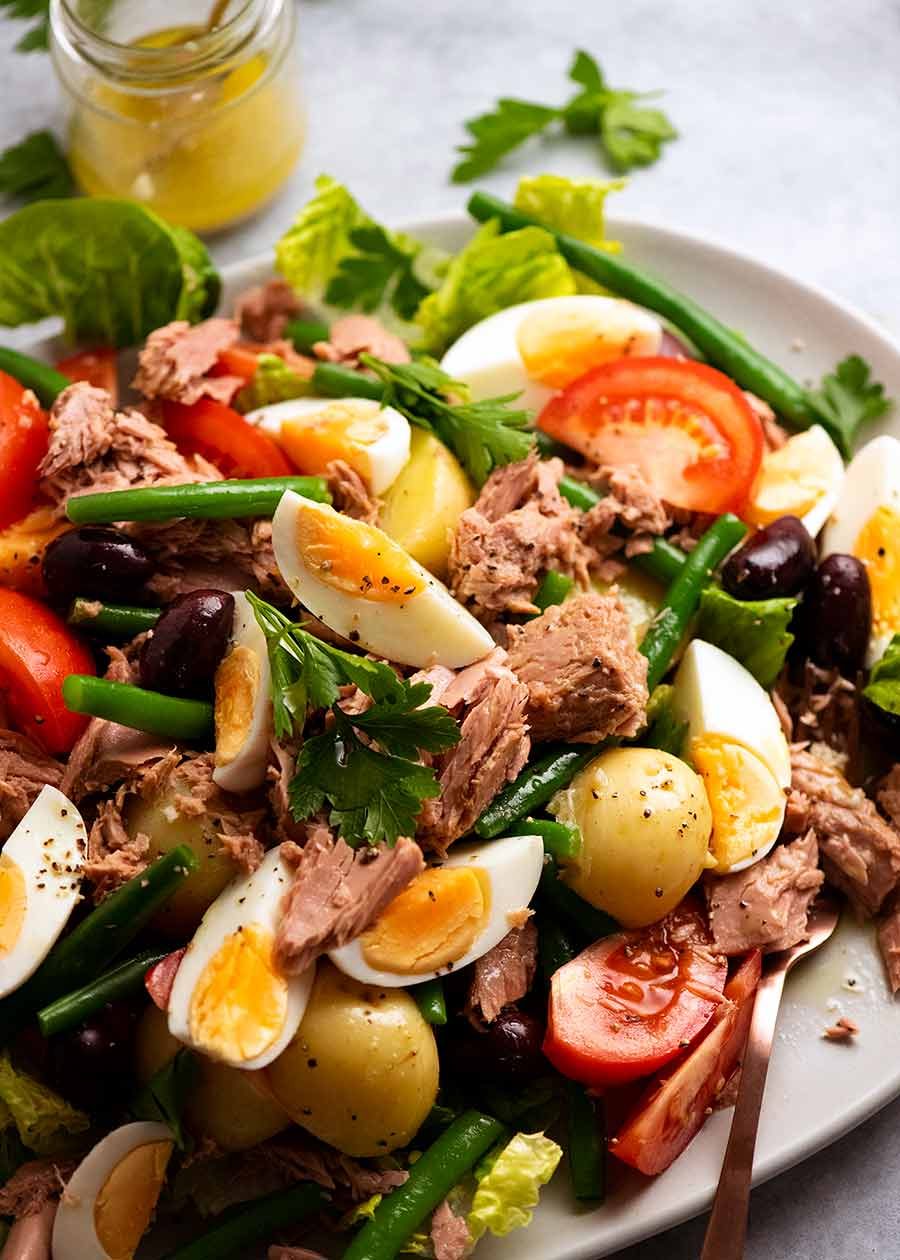
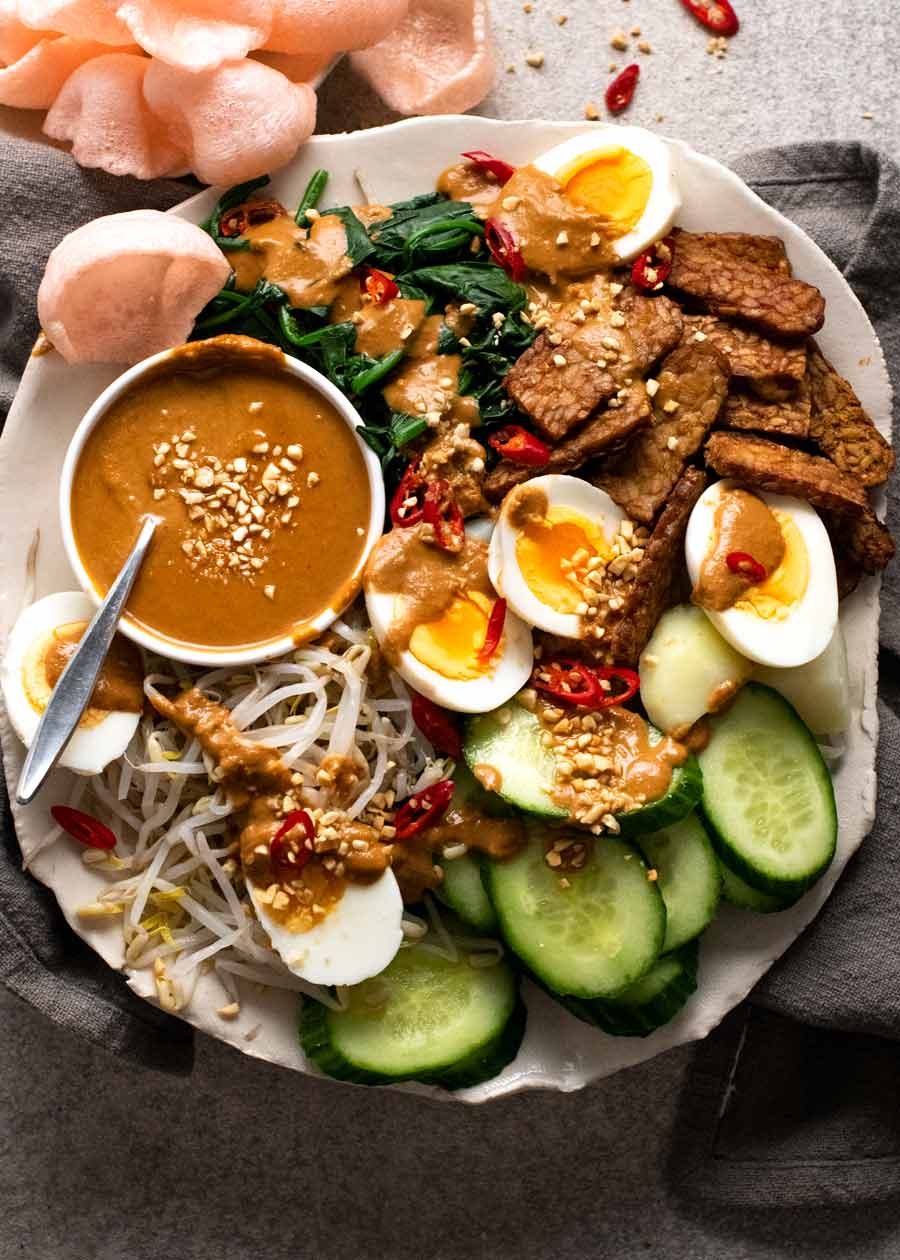

What type of boiled eggs I use for what
Dippy eggs for soldiers (3 minutes) – Made for dipping in toast sticks (pictured above), these cannot be peeled as only the outer rim of the whites are set. The yolks are runny as is the inner layer of egg whites, so you can mix it up and dip the bread sticks in.
Runny yolks (6 minutes) – I don’t use these very often because they are a bit of a pain to peel because the egg whites are just barely set so they are rather delicate! Usually if I’m after a runny yolk I’ll do poached eggs (such as for Eggs Benedict) or fried eggs sunny-side up (for burgers). Just easier to handle and cook, I find.
What I use them for – Caesar salad and on toast with avocado in some form (smashed/smeared, guacamole or avocado sauce).
Soft boiled eggs ⭐️ (8 minutes) – My favourite and default boiled egg because it is at its best! Cooked so the yolk is just set which means it is at its optimal creaminess. But the yolk is cooked enough so it doesn’t run when you cut it.
What I use them for – salads (Nicoise, chicken pasta salad, Gado Gado), studded throughout fish pie and for my favourite egg sandwiches.
Hard boiled eggs (10 minutes) – The other alternative level of doneness for the above listed salads. I prefer soft boiled rather than hard boiled simply because the yolks are creamier and the whites are softer. For some specific recipes like Devilled eggs however, you need hard boiled.
Overcooked eggs (12 minutes+) – Powdery yolks and rubbery whites are not to my taste, but do your eggs as you wish! I just hope nobody is aiming for the dreaded grey ring around the yolk. That’s as overcooked as you can get, and good for not much at all!

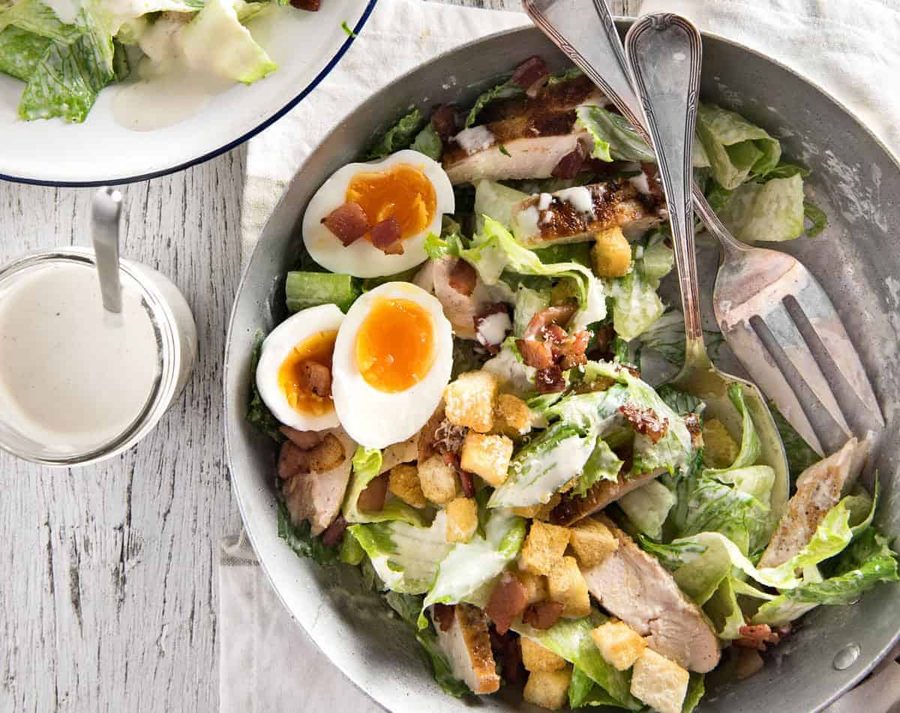

Egg cracking problems?
To prevent eggs cracking:
Lower the eggs in gently using a slotted spoon or similar – don’t drop them in from a height!
Reduce the heat slightly as soon as the eggs are added so the water isn’t bubbling so furiously that the eggs are thrown around so violently that they crack.
The other thing that can cause egg cracking is thin shells. The thickness of shells varies which can come down to the chicken breed and the quality of the chickens – and therefore the eggs. Do you use free range eggs?
Crater eggs
As for the burning question about why some eggs peel neatly and others end up cratered like the moon? Ahh, so much information out there! The only thing I know for sure is that older eggs peel more neatly than fresh eggs. This is simply because the membrane of freshly laid eggs is adhered more firmly to the shell so it’s harder to peel off. The older the egg, the more that membrane degrades = easier to peel.
I find eggs purchased from the store that I’ve had for a week+ in the fridge almost always peel neatly.
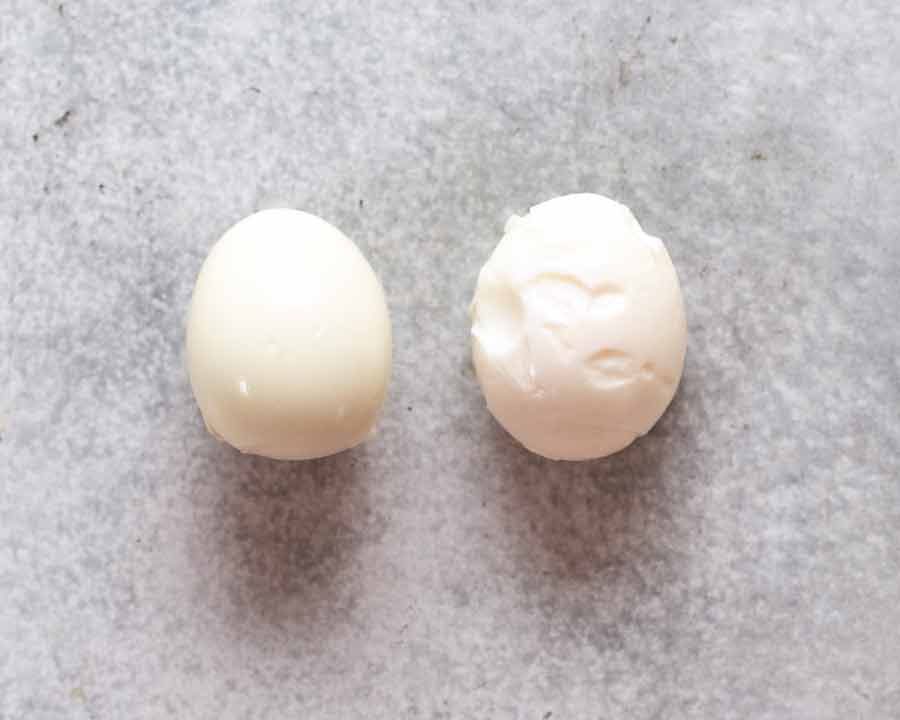
And onwards!
And that, my friends, is all the pertinent information I have to impart on the matter of boiling eggs. Go forth and enjoy your new egg boiling life, with guaranteed perfectly boiled eggs every single time!
And for egg boiling experts – share your tips. I love learning new things! – Nagi x
Watch how to make it
Hungry for more? Subscribe to my newsletter and follow along on Facebook, Pinterest and Instagram for all of the latest updates.
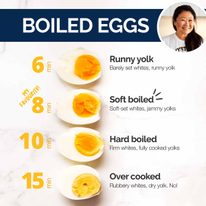
How to boil eggs
Ingredients
- Large eggs , fridge cold (55g/2oz each, Note 2)
Instructions
- Water level 3cm/1" – Fill the saucepan with enough water so it will cover the eggs by 3cm / 1" or more.
- Boil first then add eggs – Bring to a rapid boil over high heat. Using a slotted spoon, gently lower fridge-cold eggs into the water.
- Lower heat – Reduce the heat slightly to medium high – water should still be bubbling but not so much the eggs are being bashed around so roughly they crack. (Note 3)
- Start the timer once all the eggs are in. – Dippy solders: 3 minutes (can't peel)– Runny yolks: 6 minutes– Soft boiled: 8 minutes– Hard boiled: 10 minutes
- Cool 10 minutes – Remove eggs using a slotted spoon into a large bowl or sink filled with plenty of cold tap water to cool the eggs. (Ice – Note 4) Cool 10 minutes.
- Peel from base in water – Crack the base of the shell by tapping it on the counter, then peel under water from the base (it's easier).
- Storing – Hard boiled eggs can be stored in the fridge for up to 7 days (peeled or unpeeled). Freezing not recommended (whites go weird).
Recipe Notes:
Egg doneness
Start timer once eggs put into boiling water:- Dippy soldiers (3 min) – Made for dipping toast stick in (see photo in post). Only outer rim of whites set. Can’t be peeled.
- Runny yolks (6 min) – Barely set whites, runny yolk. Delicate to peel. For runny yolks I usually do poached eggs or sunny-side up.
- Soft boiled (8 min) my favourite – Soft set but fully cooked whites, fully set yolks but a bit jammy. My favourite / most used.
- Hard boiled (10 min) – Firmer whites and fully cooked yolks but not dried out.
- Overcooked (15 min) – No! Unpleasantly firm rubbery whites and powdery dry yolks.
1. Don’t crowd the eggs, they will take longer to cook! Saucepan size for number of eggs: 16cm/6″ – up to 4 eggs 18cm/7″ – 6 eggs More eggs = larger pot 2. Egg size – Eggs are sold in different sizes. The cook times provided in the recipe are for large eggs (55g/2oz each in the shell), sold in cartons labelled as such. For extra-large eggs (60g/2.2oz) add 30 seconds, for jumbo eggs (65g/2.5oz) add 1 minute. 3. Egg cracking – Lower heat as needed to prevent eggs from cracking but goal is to keep it at a gentle boil / rapid simmer. If the water is still, there is not enough heat and your eggs are not cooking fast enough! Still got cracking issues? Thin shells is a problem (are you using free range?) and sometimes eggs already have a hairline fracture (can be invisible). 4. Ice water – there’s no need to waste precious ice for the water though if you have an abundance of ice, feel free to go ahead as it will speed up the cooling time. Just be sure to use enough tap water to cool the eggs. Nutrition per egg.
Nutrition Information:
Life of Dozer
Size context: large eggs and jumbo paws.
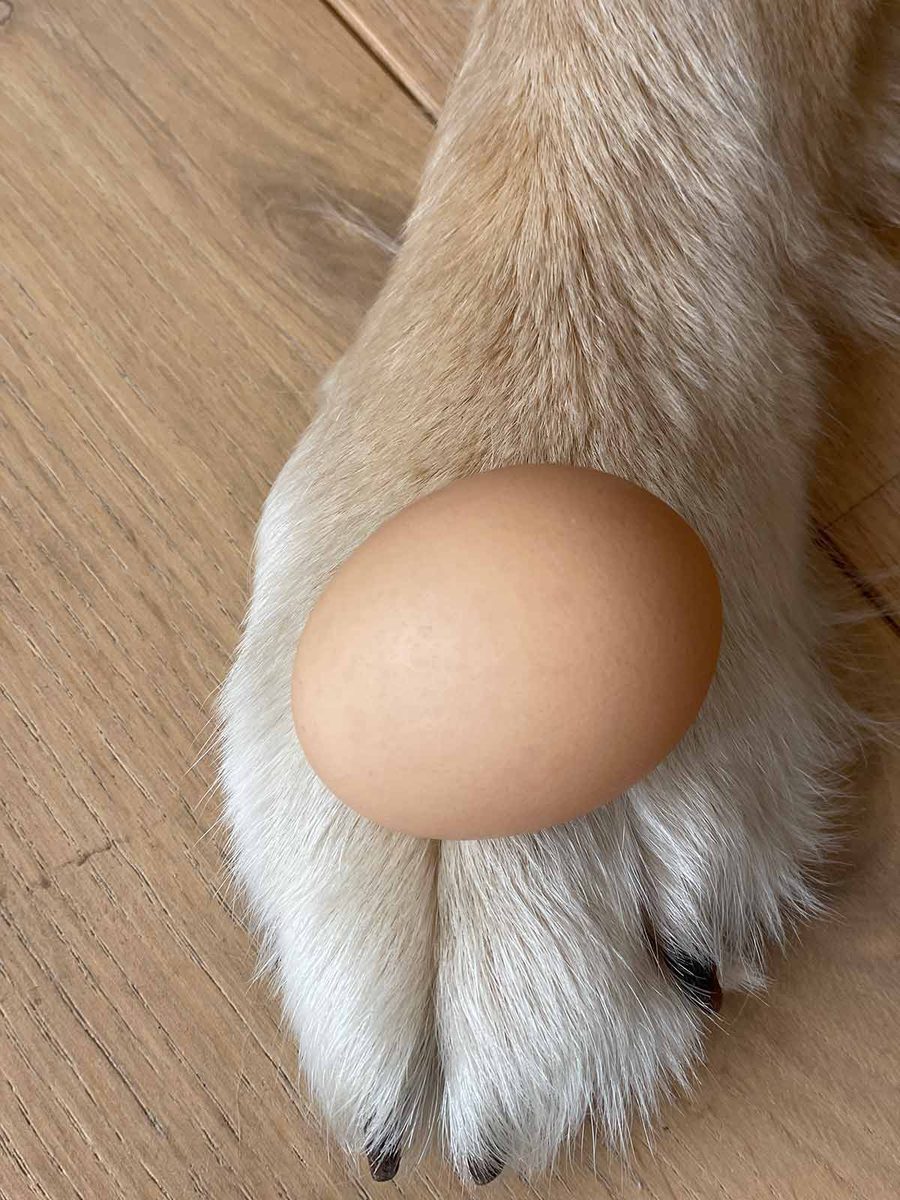
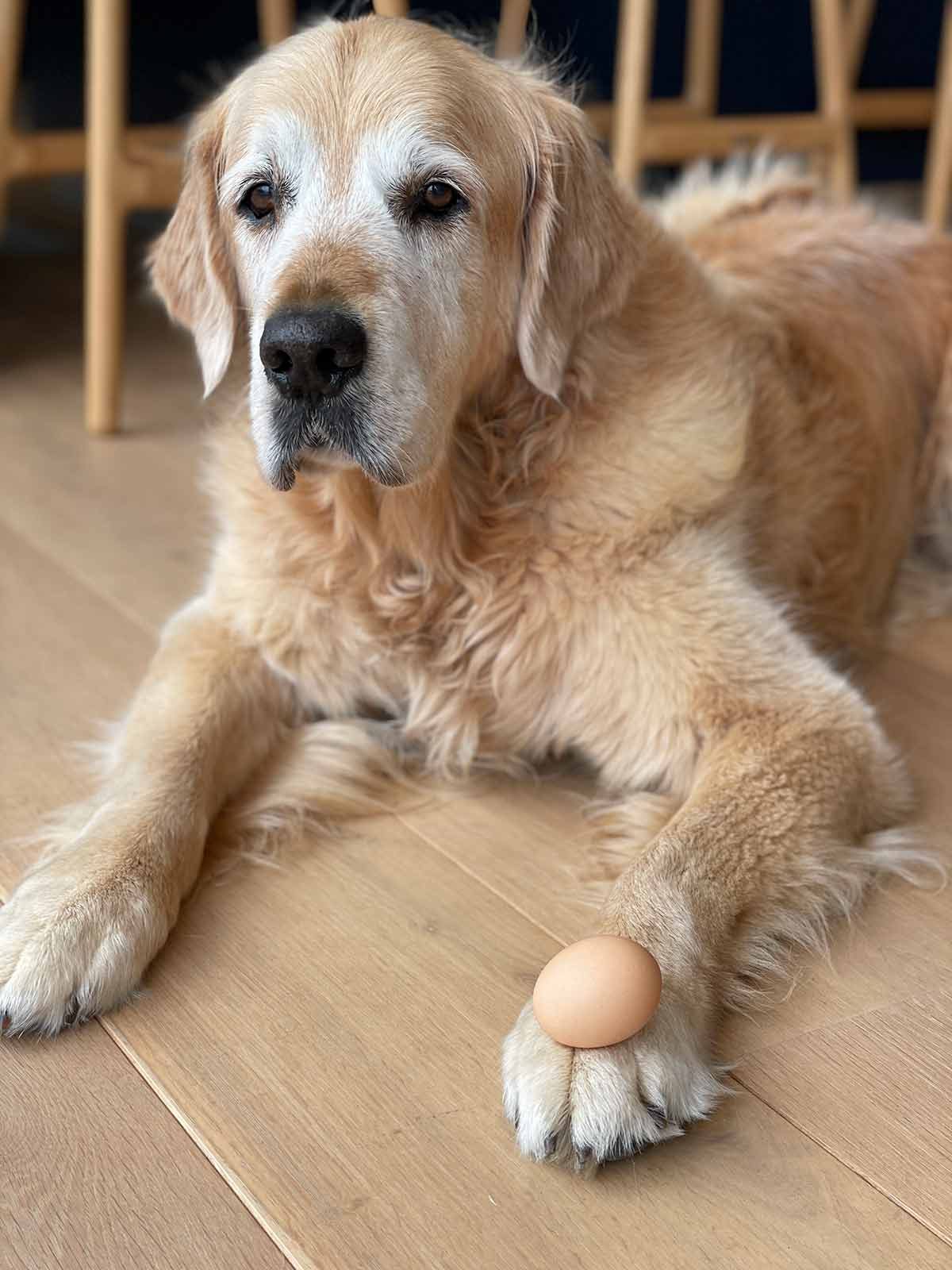
Hard boiled eggs are the best! Sorry Nagi, I disagree with you!
I do not like gooky eggs! I bring to boil, turn off heat, and let set 15 min. Don’t hardly ever get the green ring!
any tips on best way to cut the tips off for dipping soldiers?
My godmother gave me her secret to hard boiled eggs many years ago and it is foolproof (or Robyn proof lol). Put eggs into a pot of cold water (I do 4 at a time), bring to the boil and once boiling turn off the heat, put on the lid and leave them overnight ( or until absolutely cold). I then pop them in the fridge to peel when I need them.
I use an airfryer to ‘boil’ my eggs.
Simply pop the number of eggs you want ‘boiled’ in the air fryer, temp on anywhere between 130-150 C.
Then follow Nagi’s minutes for your preferred egg type.
Run under cold water or cool in a bowl of water and peel!
It was lovely meeting you in Melbourne’s Southland, Nagi-san.
これで、終わりです。 ^_^
Hi Nagi
Just watched your book signing. Great show! I cannot wait to get my book in Canada next week. Your recipes always turn out. Love Dozer. Thank you!
Thank you SO much for this! I’d tried it and the egg came out exactly as said. I almost bought a gadget that supposedly help but didn’t want yet another single purpose trinket.
I don’t refrigerate my eggs. how should the cooking time be adjusted?
As a previous health inspector, for food establishments, you SHOULD refrigerate your eggs!
We have a little device that pricks the shell of the eggs before putting into the water. Works a treat no busting open during the cooking.
Hi Nagi,
My Mum always put some salt in the boiling water. The reason, if the egg cracks and the white escapes the salt stops it from boiling over and messing up the stove. I do it all the time and never have I had an issue.
I was going to write the same thing, that’s how my dad taught me and how I’ve always boiled eggs. I think it also prevents too much of the egg white from escaping the shell if the egg gets cracked.
Hi Nagi,
I used to work in a Swedish restaurant and we would peel a large pot of hard boiled eggs each day for slicing on a wire egg slice for traditional open sandwiches. The egg sliced had to look perfect. The method to ensure they peeled perfectly without removing bits of the white, was as you said, was not to use the freshest eggs, and also after boiling, to plunge them into a basin of cold water, run the cold tap into the basin whilst gently tapping the egg against the side of the basin and rolling the egg around whilst tapping it often to make little cracks all over the shell, this enabled the cold water to help release the egg from the membrane. Once all the eggs were cracked, and resting in the basin of cold water, it was time to start peeling the shells away, starting from the base. Worked a treat.
YAY!! My cookbook arrived today!! Love it! And you and Dozer too! ❤️😊👩🦳 Thank you Nagi!!
Thank you for this valuable information on cooking eggs. No wonder I have disasters with my hard boiled eggs!!!
I would not have known about the egg size difference without Dozer!
I will try the slotted spoon method. I usually leave the spoon in the pot with the egg for 10 seconds.
After transferring the eggs from boiling water to cold water, I give them a sharp tap with the back of the spoon to make a small crack in the shell. The water seeps in under the shell and makes for easier peeling.
I never boil my eggs. I hard-cook them. I place the cold eggs into a heavy bottom pan with cold water, and 1 Tb salt. Bring the water to a boil, turn off the heat, cover the pan, and let sit for 12 minutes. Drain and place in bowl of ice water. Perfect hard-cooked eggs every time. My Mother taught me this over 70 years ago, and it has never failed me yet.
Adding a couple of teaspoons 0f baking sodo to the water will help keep the eggs from cracking and will make peeling them easier.
Simply steam the eggs for 6 minutes, pull them off the heat for 6 minutes. Put them in cool water or let them cool on their own and the shells will practically jump off.
Thank you a hundred times for I have never really known how to boil an egg (always have been embarrassed to ask – I am 65 years old). Can’t wait to try your method.
I love these “back to basics” recipes!
I keep my eggs out of the fridge, but I achieve your results in about the same amount of time because I put the eggs in a small pot and then pour freshly boiled water from the kettle, so the pot needs a moment to come to the right temperature. But this has the added advantage of reducing the chances of cracking.
My preferred method for peeling is to roll them with enough force to crack the shell along the “Equator” and then peel. If they’re giving me a hard time, I put them back in the cold water for a few minutes and the shell comes off easily. I haven’t had crater eggs in a really long time this way.
The comment to overcooked eggs cracked me up (I haven’t read the full post yet…). My mother was one of the many, who assumed purple rimmed eggs meant hard boiled, that is until I came along and had to do things differently 😆. But really, no amount of mayonnaise can hide a dry egg yolk! So I had to find the real amount of time needed (and a use/work out microwave cooking for said undercooked eggs lol). Biggest trick I learned is to use really icy water for peeling. Do not skimp on the ice! (Like me ha!)